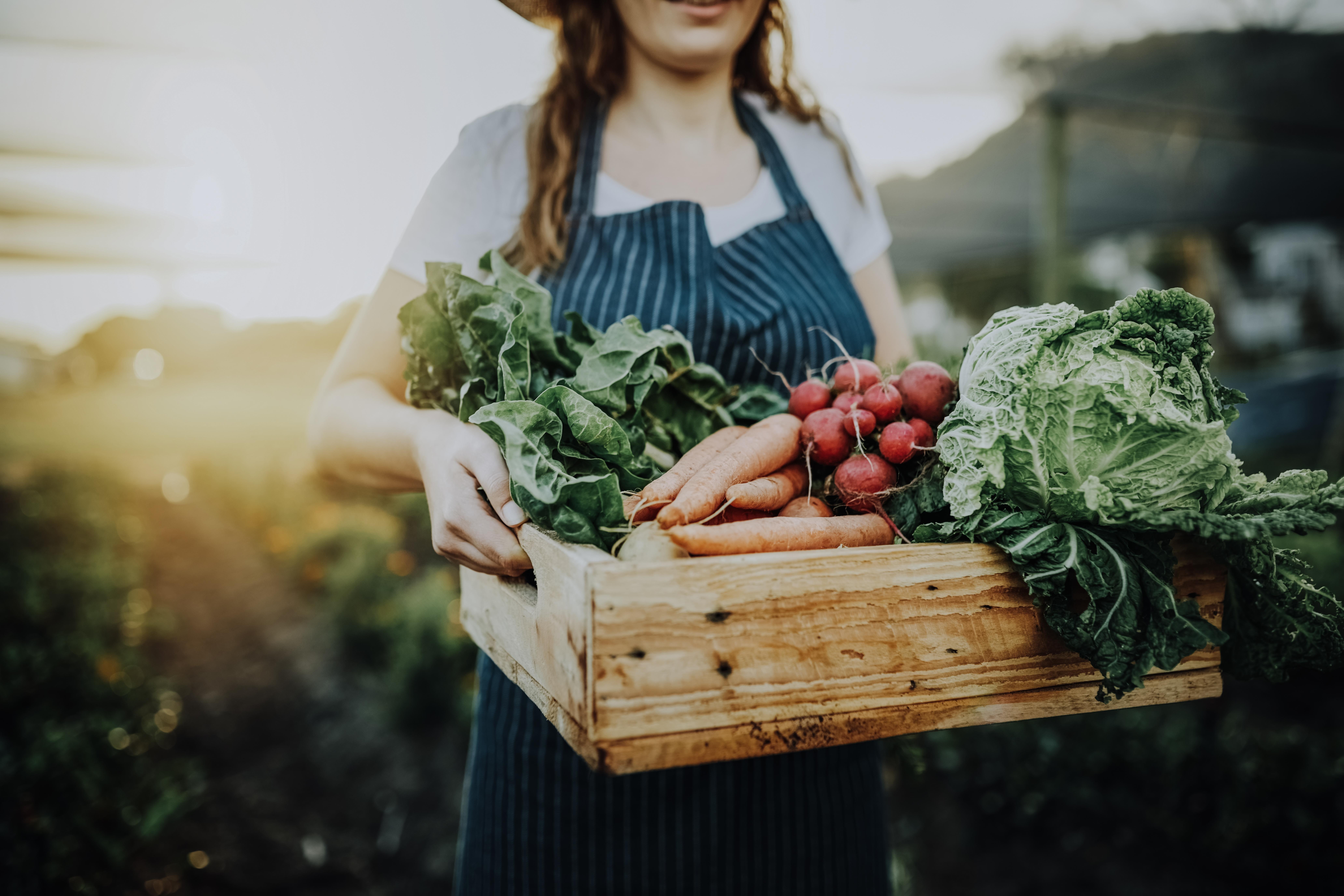How to Be an Environmental “Helper” — From the Comfort of Your Own Home
Just because you aren't out in the world doesn't mean you can't do your part for the planet!
Updated Nov. 19 2020, 9:41 p.m. ET

In times of crisis — no matter how big or how small — the Internet often shares Mr. Rogers’ timeless words of advice for kids: When he would see scary or unsettling things on the news, his mother would tell him to “look for the helpers.”
In 1986, the late television star first explained in a newspaper column he would do this as a kid when the world seemed particularly scary or overwhelming — while encouraging young people to do the same.
“My mother would say, ‘Look for the helpers. You will always find people who are helping,’” he wrote. “To this day, especially in times of disaster, I remember my mother’s words, and I am always comforted by realizing that there are still so many helpers — so many caring people in this world.”
And as the world comes together — by staying apart — in the wake of the novel coronavirus outbreak, there are plenty of scary moments on the news; but the good news is that we have the chance right now to be the helpers — especially for the children, some of whom you may be home with right now, by setting an example for them (during quarantine and beyond).
When Earth Day was first celebrated all over the country on April 22, 1970, it was all about getting out and coming together to fight for the planet. This year, Earth Day will look a little different — but just because you can’t come together or get outside doesn’t mean you can’t do your part and be a helper for the planet this Earth Day.
Keep reading for ways you can do your part, and help our planet.
Continue to Shop Local (Especially for Produce)

Shopping local is one of the best and easiest ways you can flex your environmental muscle without making any significant sacrifice on your end. We already know that locally grown food is generally gentler on the planet — not only does it avoid the additional emissions that come with transporting our food supply, but it’s also an easy way to support your local economy, which is likely hurting in the wake of the outbreak.
With some many farmers already struggling to pay employees and offload their crops that would usually go to now-shuttered restaurants, many have opted to sell their crops directly to consumers to help weather the storm that is COVID-19.
If you aren’t one to cook your own food, consider shopping locally by supporting a restaurant in your community — if they get their supply from a local farm, even better. Supporting these local businesses that are struggling to offload their supply also helps to reduce the amount of food waste.
Eat Entirely Plant-Based At Least Once a Week

The facts are undeniable when it comes to animal agricultures’ impact on emissions; according to research by Joseph Poore out of Oxford University, avoiding meat and dairy is probably the single best thing an individual can do to make a difference for our planet.
This is the basic philosophy of Meatless Monday: By avoiding meat just once a week, you’re making a big impact on not only your own health, but also the health of the planet. Whether you’re ordering in from local restaurants, or getting creative in your kitchen with plant-based ingredients, serving more vegan meals is a way to lead by example for the younger generations in your home (remember, they’re the ones who will have to deal with our climate one day).
Host or Organize a Neighborhood Cleanup

One activity that can be done alone — or, at the very least, with a good six feet between people — is a neighborhood cleanup; although public places like parks and beaches are temporarily closed in some communities, other places are still open and could probably use the clean-up efforts. (Not to mention, the areas outside pharmacies and grocery stores have only seen more litter in the wake of the pandemic.)
Of course, with an increase of public health-related litter — such as masks and gloves — it’s important to be extra precautious when you’re cleaning up to make sure you’re protecting your own health; never handle any litter without protection like gloves, and make sure the bag you use to collect your trash is tightly sealed and disposed of properly when you're done.
Join a Digital Strike

Activism is at the heart of Earth Day — it was first launched in 1970 as a peaceful demonstration to demand our government to explore environmental reform. It was, of course, successful: That same year, it led to the creation of the Environmental Protection Agency and the passage of the Clean Air Act, followed by the Clean Water Act in 1972 and the Endangered Species Act in 1973.
Fortunately, we live in the future — and it’s easier than ever to participate in a strike from the comfort of your own home. Greta Thunberg’s Friday for Future climate strikes have gone digital in the wake of COVID-19, and the Jane Fonda-led Fire Drill Fridays have also relocated from the Capitol to the Internet due to the pandemic.
To find a local event that you can digitally “attend” on April 22, head on over to the official Earth Day website, where you can either find and attend local events or register your own.
Donate to Advocacy Groups

Nearly everyone in the world is feeling the impact of the pandemic’s economic consequences — and various charities and organizations are feeling the hit, too. If you can afford to, one of the best things you can do is donate to one of these advocacy groups that are still doing important work in the field despite the pandemic.
Check out our guide to the best environmental charities you can donate to if you’re fortunate enough to make a contribution, and could use some guidance on where to donate.
Call Your Leaders

Reminder: Even with everything going on in the world, we still have an important election coming up. Not only will we be voting in a presidential election, be there are also 35 senate seats, 11 gubernatorial seats, all 435 voting seats in the House of Representatives up for grabs this November. And that doesn’t even take into account all the local elections that will also take place this year.
One way you can make your voice heard before it is time to cast your ballot — whether it is by mail or if the polls will be physically open this fall — is by having your local leadership know what matters to you. Amidst the battle against coronavirus, the federal government have been quietly passing legislation that will hurt our planet in the long run (some examples include the decision by the EPA to roll back mercury regulations nationwide and three states making fossil fuel protests illegal).
Just because you are physically distanced doesn’t mean you have to keep quiet — and calling your leaders and demanding accountability and action for the planet is a good way to make sure you and your message are as loud as ever.
Educate Your Friends

Social distancing is about physically distancing — not losing your connection to the people in your life. In fact, many people have unexpectedly found themselves reconnecting with the people in their lives as those of us who are staying at home probably have some extra time in our schedules.
Voting, advocating, donating, and protesting are all important actions that can, and should, be taken this Earth Week; but one of the ways you can expand your impact and reach for the planet is by encouraging the people in your life to do the same; encourage them to register to vote if they aren’t; share recipes that will maybe encourage them to eat more plant-based foods; organize a clean-up, in which you and your friends can keep distance from one another while cleaning a shared space.
Earth Day wouldn’t exist without the community behind it — and just because our “community” may not be in-person this year doesn’t mean we can’t all come together to make a difference for our planet today, and inspire the “helpers” of tomorrow.
This article is part of Green Matters’ 2020 Earth Day campaign, #HomeSweetEarth, which aims to remind readers that the one thing we all have in common during this hectic time is our home: our shared home, planet Earth. We hope our stories this week will inspire you to connect with and honor the Earth during the pandemic — and beyond.